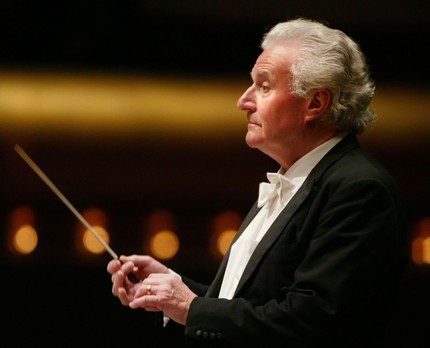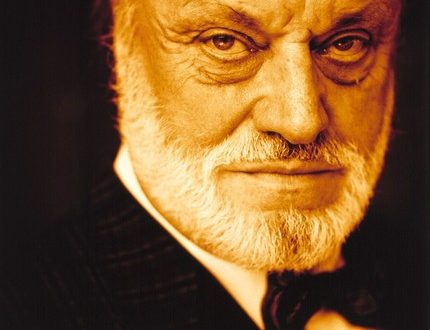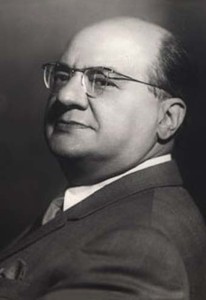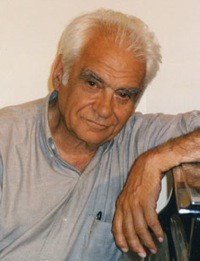
Colin Davis (Davis) |
Colin Davis

In September 1967, Colin Davies was appointed principal conductor of the BBC Orchestra, thus becoming the youngest leader of one of the best English orchestras in its history – since 1930. However, this did not surprise anyone, because the artist has already managed to gain a strong reputation, and has received recognition abroad in England.
However, Davis’ first steps in the conductor’s field were not easy. As a young man he studied the Clarmette at the Royal College of Music in London, and after graduating he played in a number of orchestras for about four years.
Davies first took up the baton in 1949, conducting the newly created amateur Kalmar Orchestra, and the following year became the head of a small troupe, the Chelsea Opera Group. But it lasted only a few months, and Davis, who left the profession of a clarinetist, was out of work for a long time. Occasionally he had occasion to conduct professional and amateur choirs and orchestras. In the end, the BBC invited him to assistant conductor of their Scottish Orchestra in Glasgow. And soon after that, he made his debut in London with a concert in the “Young Conductors” cycle, and the Evening News newspaper noted “the outstanding conducting talent of this clarinetist.” At the same time, Davis had the opportunity to replace the ill Klemperer and conduct a concert performance of Don Juan at the Royal Festival Hall, then perform instead of Thomas Beecham and hold eight performances of The Magic Flute in Glyndebourne. In 1958 he became the conductor of the Sadler’s Wells troupe, and in 1960 he became the theater’s chief conductor.
In subsequent years, Davis’ fame grew very rapidly. Recordings on records, radio and television appearances, concerts and performances follow one after another. Davis has traveled to most European countries; in 1961 he successfully performed in the USSR.
His programs included Berlioz’s Fantastic Symphony, Britten’s Funeral and Triumphal Symphony, Tippett’s Concerto for Double String Orchestra, Stravinsky’s Symphony in Three Movements, and a number of other compositions. The Soviet public immediately fell in love with the young artist.
K. Davis himself considers himself first of all a musician, and then a conductor. Hence his repertoire sympathies. “I love both opera and concert stage equally,” he says. “After all, for a musician, the question of the quality of music is important, and not of its form.” That is why the name of Colin Davis can be seen equally often on both concert and theater posters: he constantly leads performances at Covent Garden, gives concerts a lot, promoting the modern music of English composers – Britten, Tippett. The works of Stravinsky are close to him, and of the classics, he most often conducts Mozart.
L. Grigoriev, J. Platek, 1969





